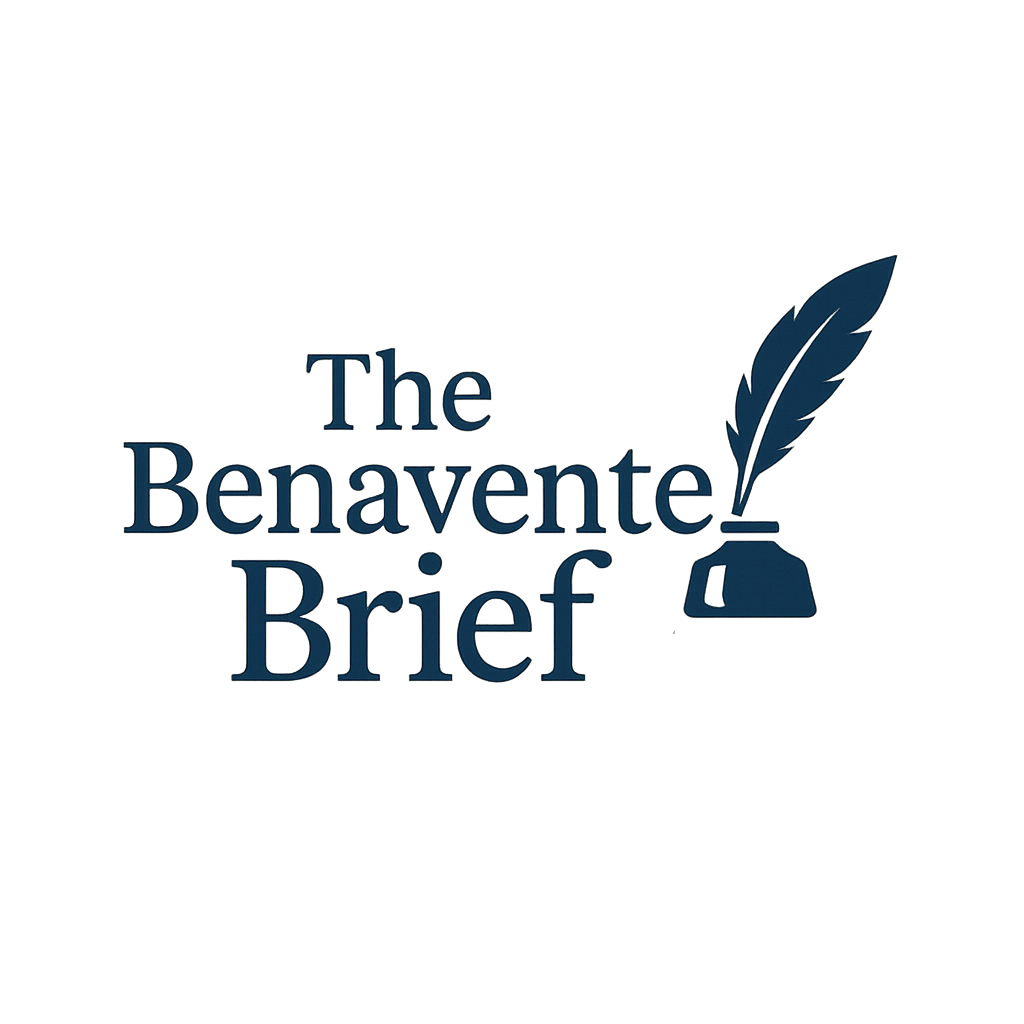The Spy Who Built Russia
Vladimir Putin is not simply a dictator clinging to power. He is the product of a century in which Russia collapsed twice, was humiliated by the West, and nearly lost its identity. For millions of Russians, he is the man who reversed decline, restored dignity, and stood up to NATO. R Benavente
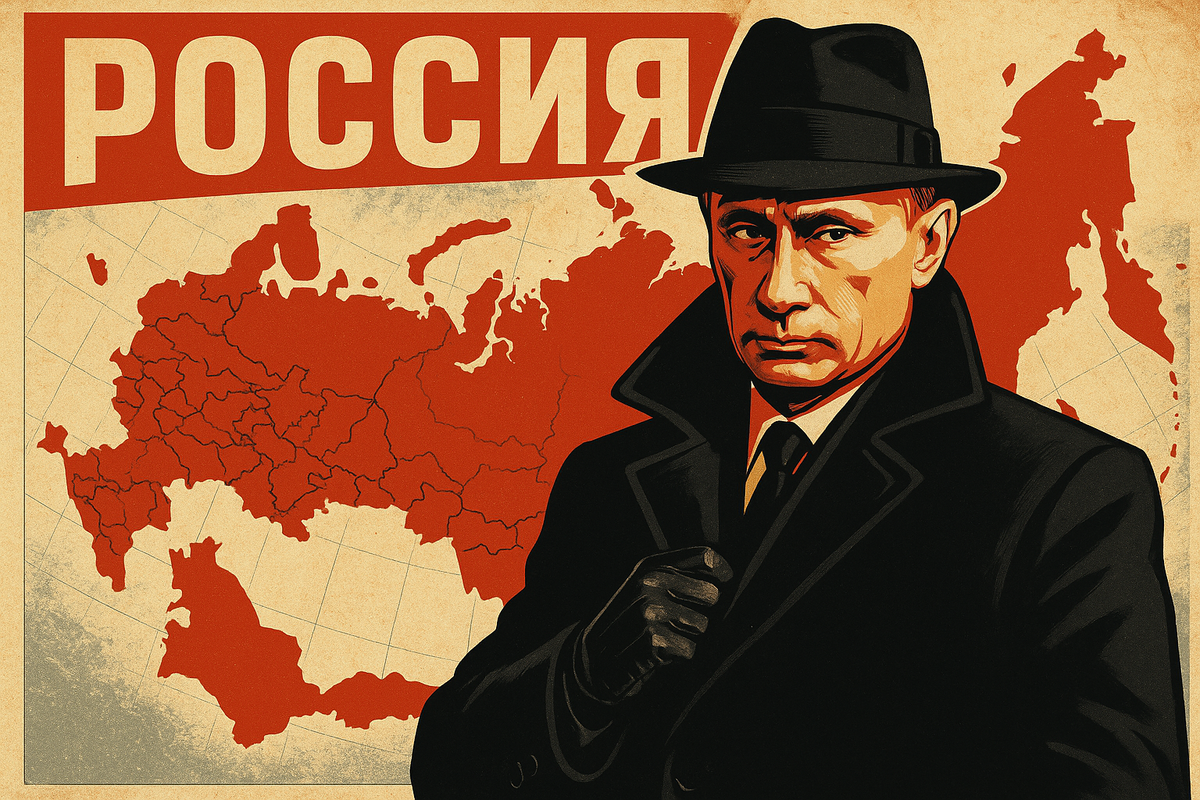
By Rafael Benavente
Vladimir Putin: From KGB Agent to Russia’s Strongman
Introduction
Few global leaders have defined the course of world affairs in the 21st century as much as Vladimir Putin. To his critics, he is a dictator, a “new Hitler” bent on conquering Europe. To his supporters, he is the man who saved Russia from collapse, restored national pride, and rebuilt the country’s economic and military strength.
But to understand Putin, one must first understand the fall of the Soviet Union. Without the collapse of that empire, there would be no Putin as we know him today.
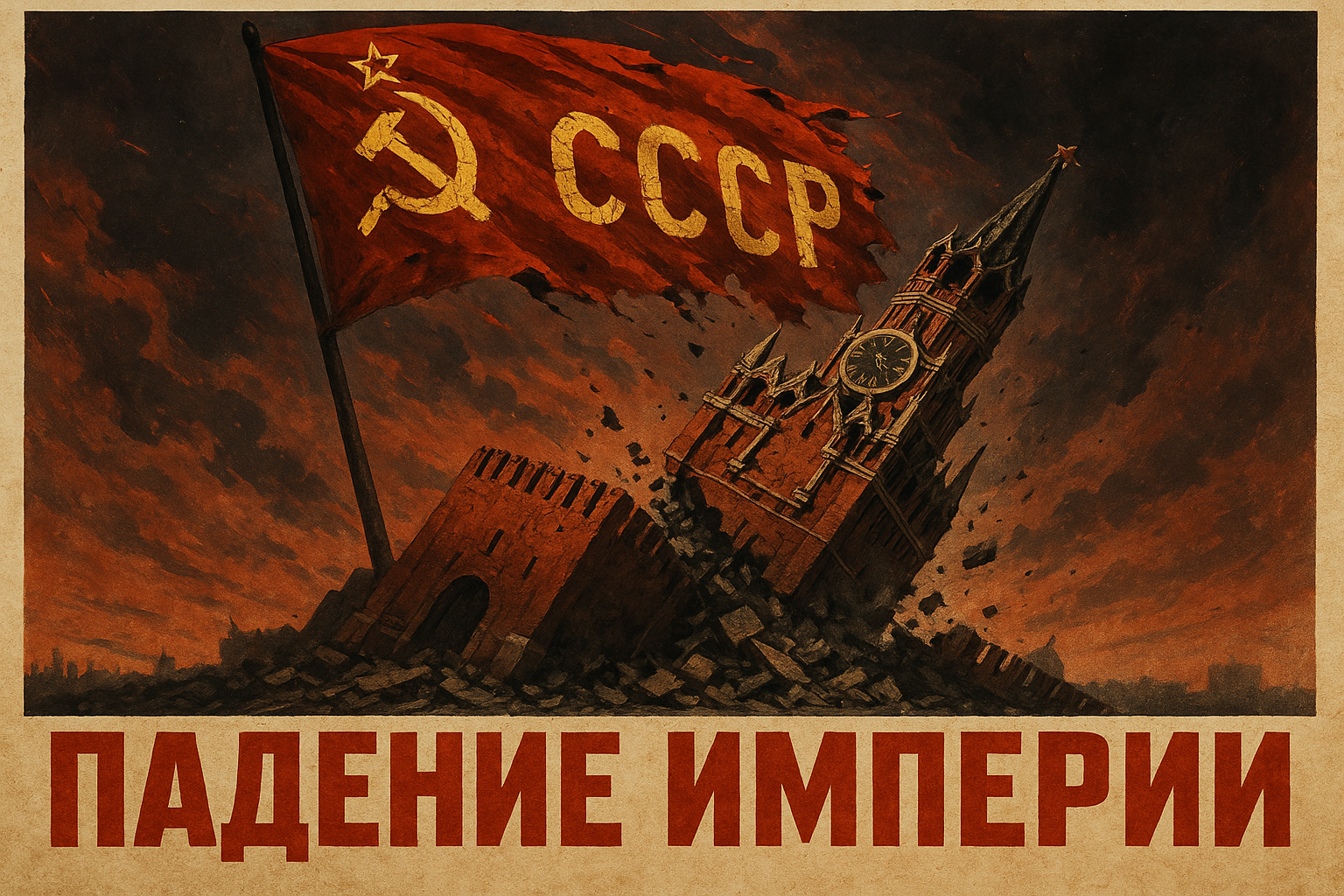
The Fall of an Empire
Putin himself once said that the dissolution of the Soviet Union in 1991 was the “greatest geopolitical catastrophe of the 20th century.”
And with reason. In the same century, Russia collapsed twice:
- 1917: The fall of the Romanov dynasty during World War I.
- 1991: The collapse of the Soviet Union after the Cold War.
Both times, the West — particularly the U.K. and the U.S. — played active roles in undermining Russian power.
When the USSR disintegrated, fifteen new republics emerged: Estonia, Latvia, Lithuania, Belarus, Ukraine, Moldova, Georgia, Armenia, Azerbaijan, Kazakhstan, Uzbekistan, Turkmenistan, Tajikistan, Kyrgyzstan, and Russia itself.
The once-mighty Soviet empire, which had stretched deep into Central Europe, suddenly shrank back to Russia’s borders. For Russians, the loss was not just geographic — it was existential.
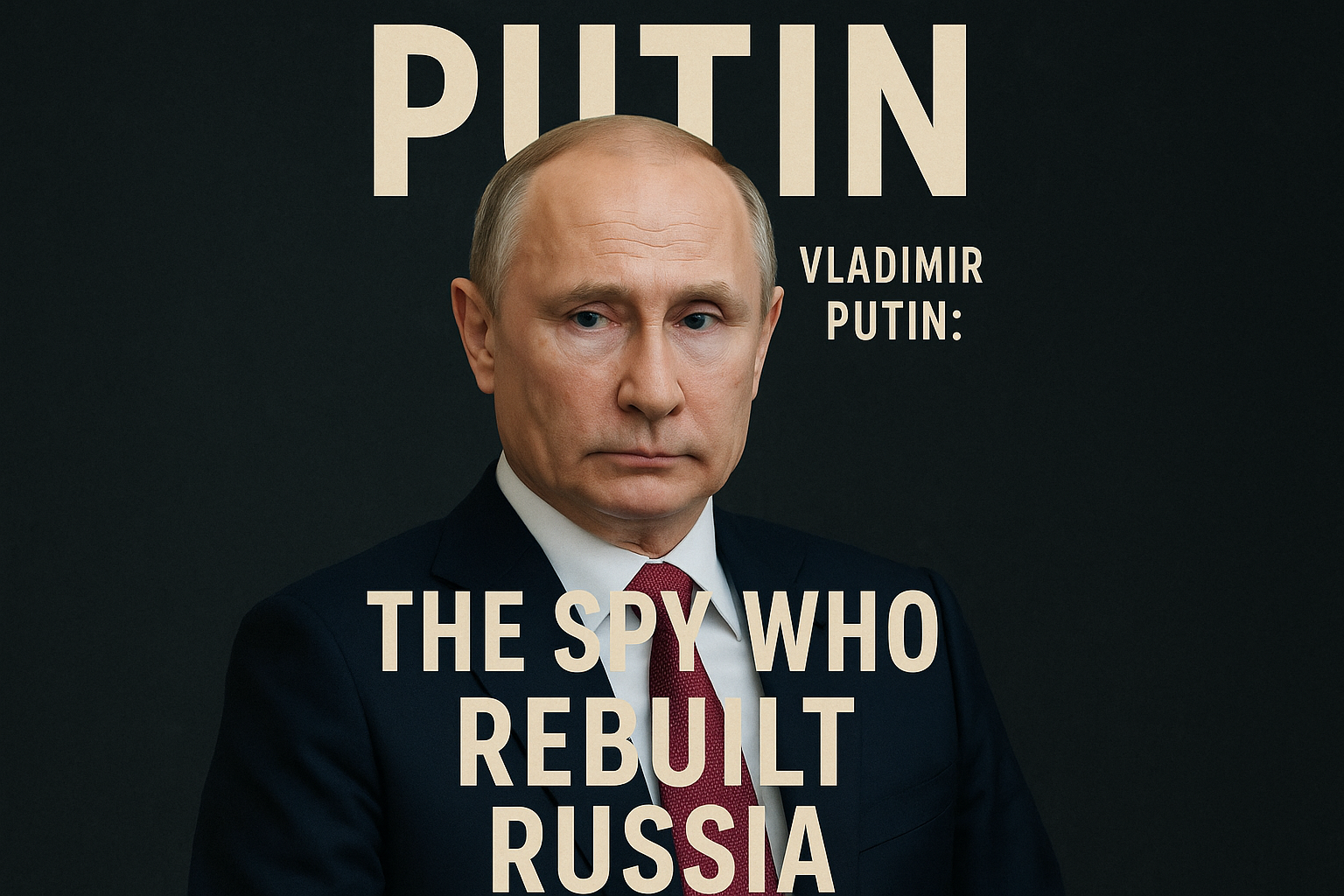
The Making of a Spy
Born in 1952 in Leningrad (now St. Petersburg), Vladimir Putin grew up in the shadow of World War II and the Soviet experience. He studied law and graduated in 1974, but instead of pursuing a legal career, he joined the KGB, the Soviet Union’s infamous intelligence agency.
For a decade, Putin trained and worked as a spy in Moscow and St. Petersburg. In 1985, he was posted to East Germany as a KGB officer — one of the most sensitive positions in the Cold War, since East Germany was the fault line between communism and capitalism.
It was there that Putin watched the Berlin Wall fall in 1989, and with it, the communist bloc he had served all his life. By 1990, the KGB withdrew from Germany, and Putin returned to St. Petersburg with no clear future.
Entering Politics
Back in his hometown, Putin began working for his former university rector, who became mayor of St. Petersburg. Putin rose quickly, becoming deputy mayor in 1994.
In 1996, he moved to Moscow, joining President Boris Yeltsin’s administration as deputy director of the department managing state property. It was a strategic role: Russia was privatizing state-owned industries, and massive corruption was rampant. As a former intelligence officer, Putin had access to sensitive information — and leverage.
By 1998, Putin became head of the FSB (the successor to the KGB). In 1999, Yeltsin named him Prime Minister and, later that year, chose him as his successor.
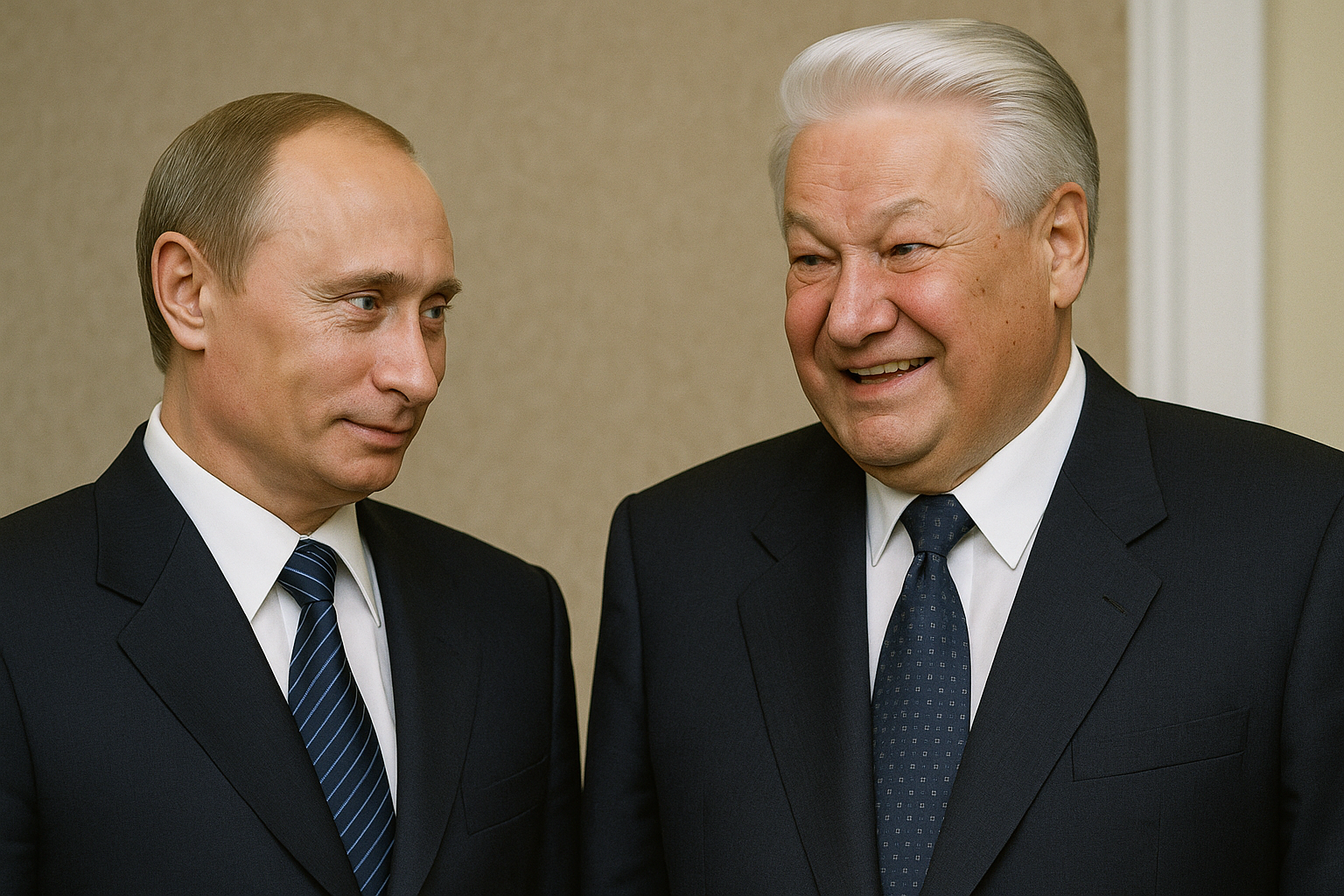
The Yeltsin Deal
Why would Yeltsin, a president weakened by corruption scandals and poor health, hand power to an obscure former spy?
The answer lies in a bargain: Putin promised to protect Yeltsin and his family from prosecution. In exchange, Yeltsin resigned early, and Putin became acting president in August 1999. By 2000, he was officially elected president.
Restoring Order and Pride
In the 1990s, under Yeltsin, Russia was in chaos. The economy collapsed, wages evaporated, and oligarchs looted state assets. Russia was mocked abroad and humiliated at home.
Putin changed that. Almost immediately, Russia’s economy recovered. Between 2000 and 2008, Russian salaries grew tenfold. Oil and gas exports boosted revenues, and Putin used the windfall to pay salaries, pensions, and rebuild infrastructure.
Equally important, he restored a sense of pride. Through carefully staged public images — practicing judo, flying fighter jets, riding horses bare-chested, even playing piano — Putin cultivated a strongman image that resonated deeply with a Russian population longing for respect.
The Strong Hand of Power
Putin’s early presidency was defined by a ruthless approach to security:
- Chechnya Wars: Between 1999 and 2009, he crushed separatist movements in Chechnya. The second Chechen war was brutal but effective, reasserting Russian control.
- Terrorist Attacks: Putin faced crises like the Moscow theater hostage siege (2002) and the Beslan school massacre (2004). His refusal to negotiate with terrorists, even at the cost of civilian lives, cemented his reputation as uncompromising.
- Centralization: He reorganized Russia’s 89 federal entities into seven larger districts, weakening local autonomy and strengthening Moscow’s grip.
For many Russians, these actions meant stability — even if it came at a high cost.
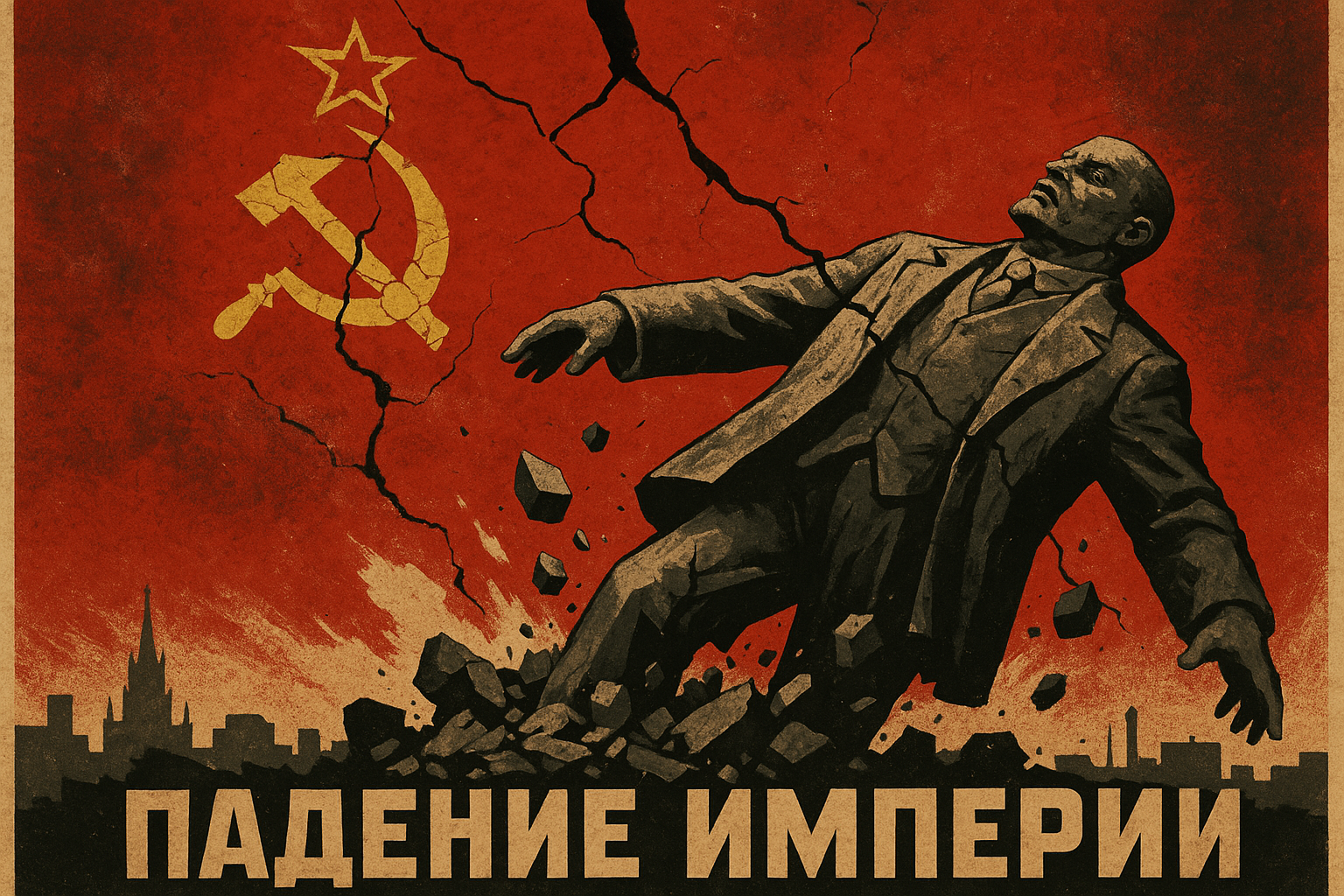
Clash with the West
At the heart of Putin’s worldview is one simple truth: Russia cannot survive if NATO encircles it.
When the Berlin Wall fell, Soviet leader Mikhail Gorbachev was promised by the West that NATO would not expand eastward. That promise was broken. By 2004, NATO had absorbed Poland, Hungary, the Czech Republic, and the Baltic states — all former Soviet satellites.
From Russia’s perspective, NATO was moving dangerously close to its borders.
Georgia, Ukraine, and the “Red Lines”
In 2008, Georgia — a former Soviet republic — sought NATO membership. Putin responded by backing separatists in Abkhazia and South Ossetia and launching a short war that stopped Georgia’s NATO bid.
Ukraine was next. With a Russian-speaking majority in Crimea and the Donbas, Putin insisted these regions were historically Russian. When Ukraine leaned toward NATO, Russia annexed Crimea in 2014 and fueled the conflict in eastern Ukraine — setting the stage for the full-scale invasion of 2022.
For Putin, these are not optional battles. They are existential fights for Russia’s survival as a great power.
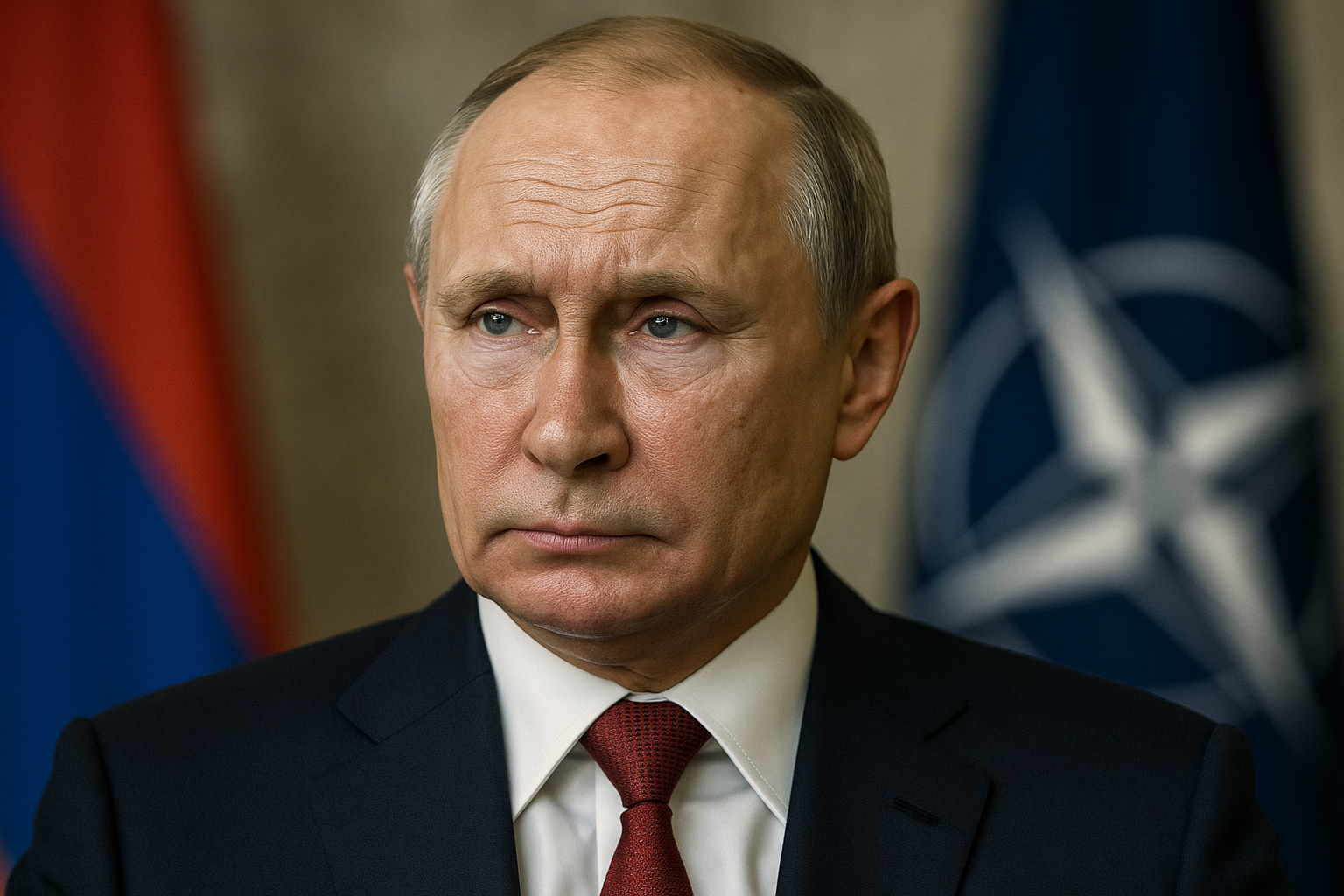
Putin’s Longevity in Power
Since 1999, Putin has been Russia’s dominant political figure. He has served as:
- Acting president (1999–2000)
- President (2000–2008)
- Prime Minister (2008–2012, during Dmitry Medvedev’s presidency)
- President again (2012–present), with constitutional changes extending his rule until at least 2030.
He has won elections with overwhelming majorities — often over 70% of the vote — though critics allege manipulation and suppression of opposition.
Why Russians Support Him
Despite Western portrayals of Putin as a tyrant, many Russians genuinely support him. Why?
- Economic Stability: After the misery of the 1990s, Putin delivered growth and wages.
- National Pride: He restored Russia’s image as a respected power.
- Security: He ended separatist wars and projected strength against terrorism.
- Consistency: In contrast to the chaos of Yeltsin, Putin embodies order.
As the transcript notes: “By giving Russians back their economy, pride, and respect, Putin gave them what they needed most: the feeling of being important again.”
The Broader Pattern: Empires Return
The narrator of the transcript makes a larger point: Putin is not unique. Around the world, fallen empires are seeking comebacks.
- China seeks to restore the influence of the Qing dynasty.
- Turkey under Erdoğan draws inspiration from the Ottoman Empire.
- Iran pursues the legacy of the Persian Empire.
- Russia under Putin dreams of reviving the Soviet sphere.
In this sense, Putin is part of a global pattern: the return of history.
Conclusion
Vladimir Putin is not simply a dictator clinging to power. He is the product of a century in which Russia collapsed twice, was humiliated by the West, and nearly lost its identity. For millions of Russians, he is the man who reversed decline, restored dignity, and stood up to NATO.
For the West, he is a dangerous autocrat willing to redraw borders by force.
Both views are true — and that duality explains why Putin remains one of the most consequential leaders of our time.
By Rafael Benavente
other blogs by Rafael Benavente, Putin bombing Kremenchuk
other blogs by Rafael Benavente, Baku dismantling Moscow
other blogs by Rafael Benavente, Deep State
other blogs by Rafael Benavente, Obama the Russian Hoax
